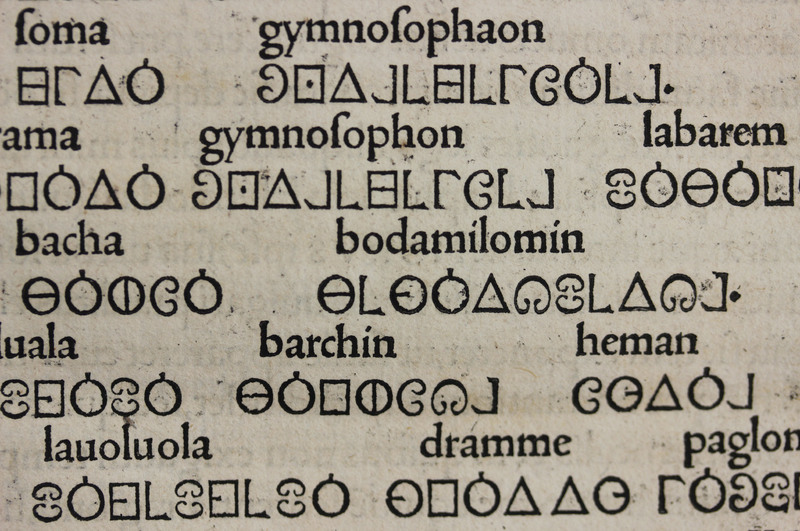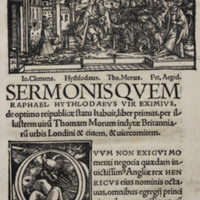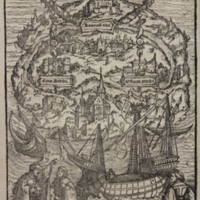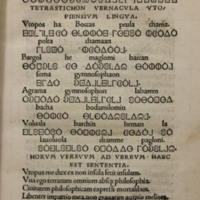Many Happy Returns
More

Thomas More, De optimo reip. statv deqve noua insula Vtopia libellus vere aureus.
[Basileae]: [apvd Ioannem Frobenivm], [1518].
Rare HX811 1516 S518
500th Anniversary of the Publication of Thomas More’s Utopia (December)
Thomas More was a man of varied talents. A lawyer by training, he went on to have a very successful public career, culminatring in his appointment as Lord Chancellor of England. Despite his many official duties, however, More was also able to establish himself as the most important English humanist of his day, and counted Erasmus as a personal friend. More was a staunch Catholic, which stood him good stead as long as Henry VIII remained one too. Once the king determined to separate himself from the Catholic Church, however, More's position became precarious. His refusal to acknowledge Henry as head of the English church lead to his arrest and execution for treason.
More was a prolific author, but Utopia remains by far his most famous work. The name comes from the Greek ou (‘no’) and topos (‘place’), and so means ‘nowhere’. Blending fictional travel narrative with political philosophy, the work describes the customs and practices of a fictional society, which More places on an island called Utopia. He even went so far as to invent a Utopian alphabet, shown at left. Despite the work's fame, More's reasons for writing it have occasioned much debate, with some arguing it is a satire and others that it present's the author's vision of an ideal society.

Thomas More’s Utopia – the name comes from the Greek ou (‘no’) and topos (‘place’), and so means ‘nowhere’ – blends fictional travel narrative with political philosophy. The work describes the customs and practices of a fictional society, which More places on an island called Utopia. He even went so far as to invent a Utopian alphabet, shown here.

Thomas More’s Utopia – the name comes from the Greek ou (‘no’) and topos (‘place’), and so means ‘nowhere’ – blends fictional travel narrative with political philosophy. The work describes the customs and practices of a fictional society, which More places on an island called Utopia. He even went so far as to invent a Utopian alphabet, shown here.

Thomas More’s Utopia – the name comes from the Greek ou (‘no’) and topos (‘place’), and so means ‘nowhere’ – blends fictional travel narrative with political philosophy. The work describes the customs and practices of a fictional society, which More places on an island called Utopia. He even went so far as to invent a Utopian alphabet, shown here.